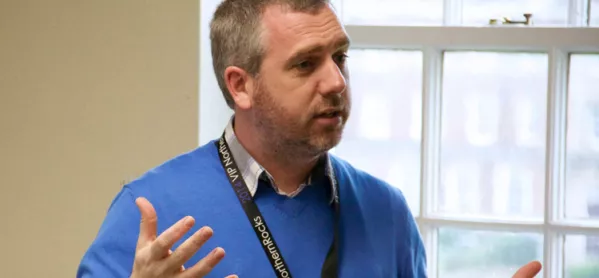It’s a quirk of the system that headteachers who - in theory at least - lead teaching and learning in a school are often one of the few members of staff without significant class teaching responsibility. I am no exception to that rule. My weekly commitment to Year 6 French, and random allocations of cover elsewhere in the school, is great for keeping connected to the children, but isn’t the same as leading a class full-time, and I’d be foolish to think it is.
If I were at risk of forgetting, then a recent stint of teaching in our key stage 2 team would have been a salutary lesson. It was also a great opportunity to be reminded of the limitations of data - a lesson that’s all too easy to overlook when you’re not in the classroom full-time. So let me tell you about my recent return to the classroom - and why I clearly “require improvement”.
It was a simple enough idea: I have a vision in mind for the teaching of writing, and what better way to show what I mean than to get into class and plan and teach an example lesson. Note, I avoid the word “model”, for I was certainly no model to follow.
The principle seems straightforward: I know the children, and I know their data intimately. I know what I want to teach, and I planned with the class teachers what we intended to achieve. On paper everything’s perfect. Indeed, if you rely on a simple form for judging good teaching, then many of the elements were already there. So where did it go so wrong?
The danger of relying on data
It turns out - to absolutely no teacher’s surprise - that knowing the children’s names, their interests and their data is no substitute for really knowing how children are doing in their learning. I knew what percentage of children were “on-track”, and exactly which were high prior attainers. I knew every pupil-premium child in the room, and even those who I needed to watch for behaviour or focus. What I didn’t know was exactly how each child would find the task I intended to set.
Nor, it’s fair to say, did the class teacher. We never do. But she had a much better idea than I did. Knowing that a child achieved the expected standard in Year 2 doesn’t tell you how well prepared they are for a lesson in the autumn term in Year 3: “expected” is far too wide a band. Some of those children will just have managed to tick the last box days before the summer deadline, others fell just short of the greater depth standard because of a small foible.
You wouldn’t have known it to watch me teach. I was so confident, in fact, that I happily had the lesson filmed. I’m not arrogant enough to think all my lessons outstanding, but I do think I can usually teach to a good standard. And teach to a good standard I did. The children were with me, the expectations high, the objectives clearly delivered.
And then I set them to task, and it began to fall apart. I didn’t know exactly how much support the weakest writers would need, because I wasn’t their teacher. I didn’t know how many would struggle to retain everything I’d covered while also recalling what they’d learned from previous lessons. But their class teacher did.
The data didn’t help me. The planning didn’t help me. What I should have done was to ask the teacher first. There’s no one knows their class’s attainment better than their class teacher, and no headteacher - or anyone else - should let themselves be fooled into thinking that the data gives them even the slightest hint of that deeper knowledge. We forget that at our peril.
Michael Tidd is headteacher at Medmerry Primary School in West Sussex. He tweets @MichaelT1979




